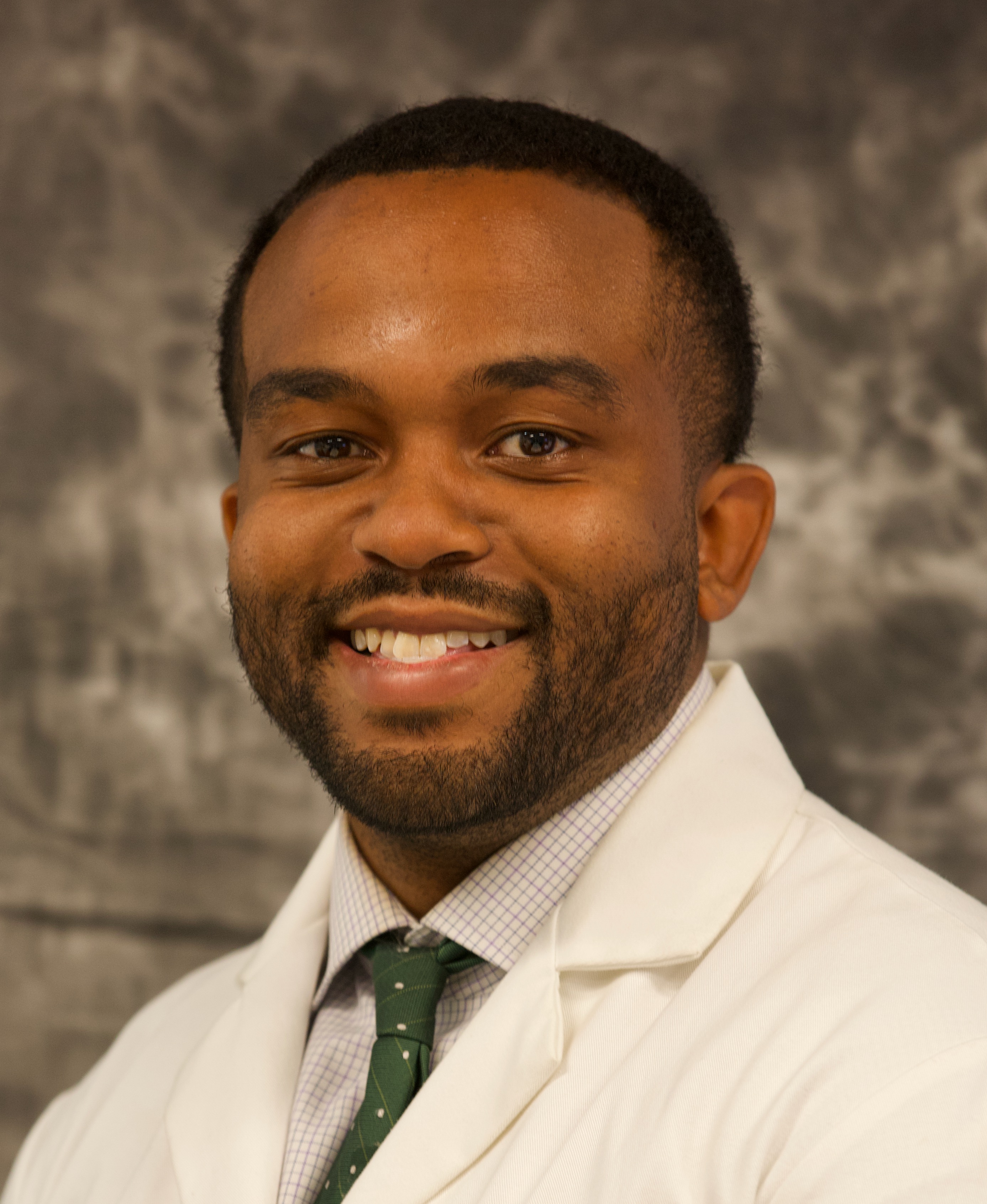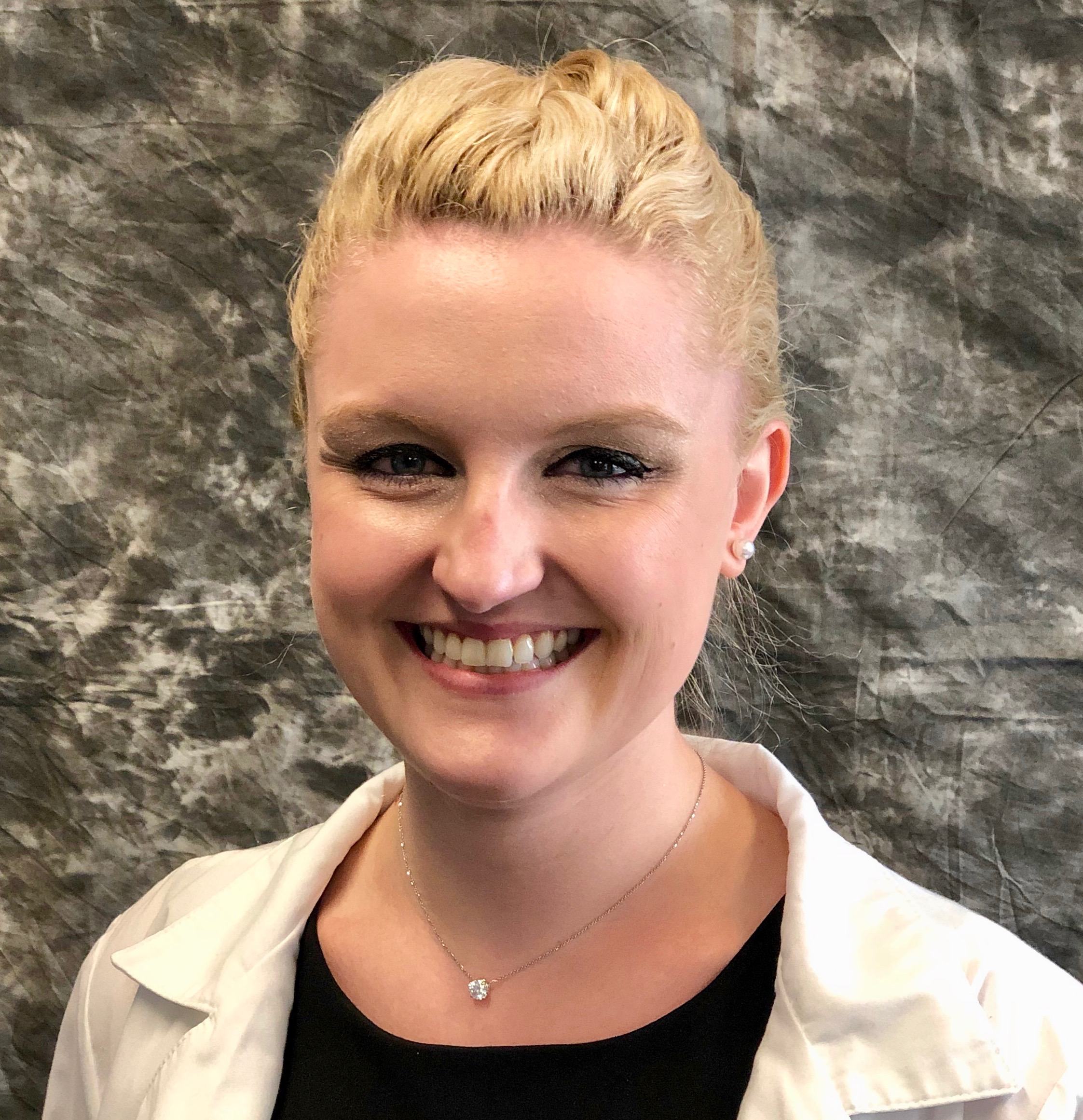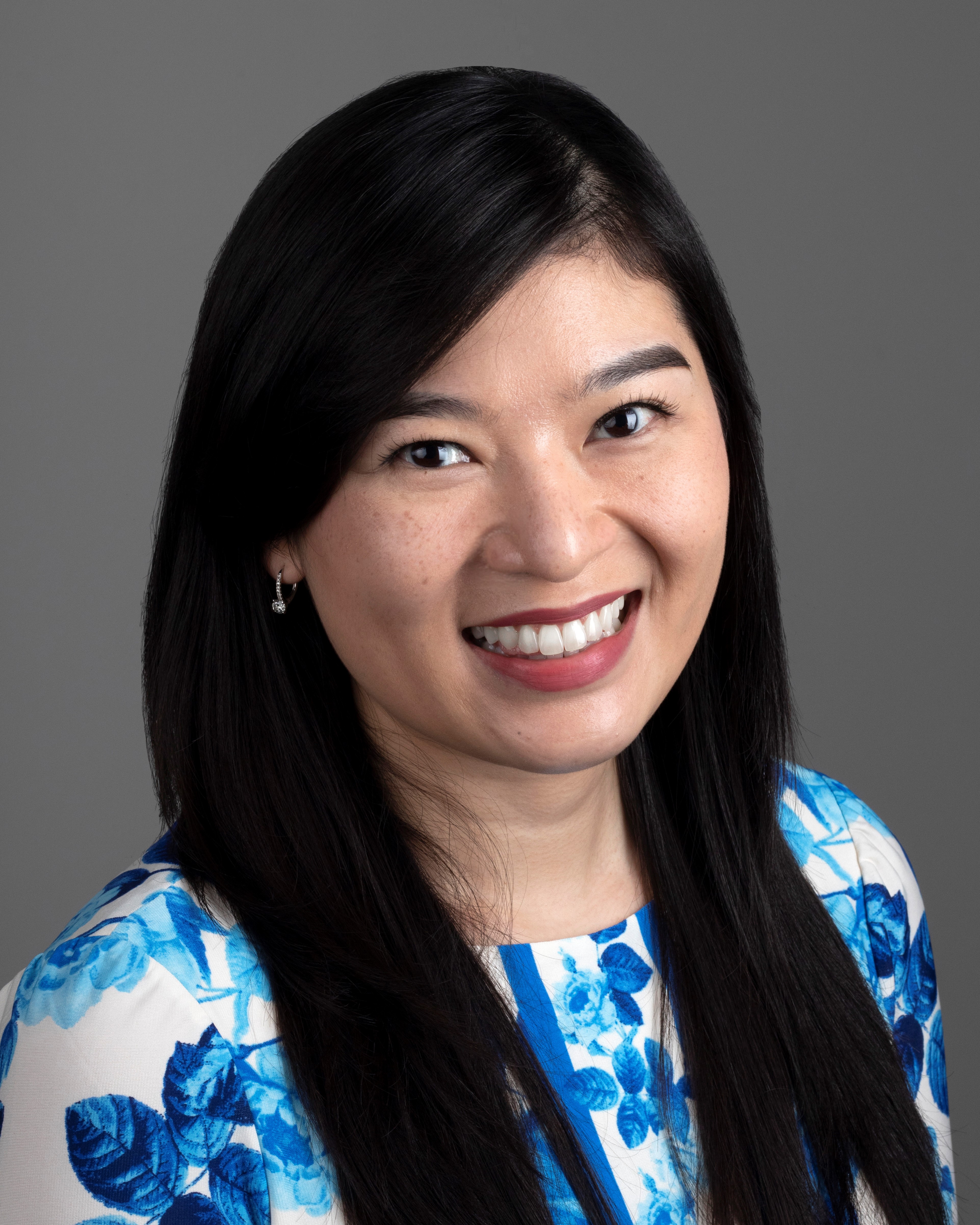
Lawrence Jones, M.D.

Lawrence Jones, M.D.
Class of 2025
5:00 am – My alarm is going off. Should I hit the snooze button? Yeah, I think I’ll hit snooze. Time to shower, get dressed, and coffee.
5:30 – Headed to work – 20-25 min commute from the suburbs where I live. Around a 5-10 min commute if you live in Richmond. Plenty of affordable housing in and around the city. Plus, the parking deck is connected to the hospital by an enclosed bridge. Nice on a cold or rainy morning.
6:00 – In the hospital and changing into my OR scrubs. Headed to the OR to set-up for the first case. Setup varies depending on the case.
Neuro – A-line, drips for TIVA, neuromonitoring considerations, special drugs (ie mannitol, Keppra, remifentanil, steroids, etc)
Cardiac – A-line, central line, +/- Swan, TEE, drips
Ortho – Ultrasound guided peripheral nerve blocks, neuraxial
Thoracic – Double lumen tube, jet venti
What is there not to love about anesthesia? Variety at it’s finest!
7:00 – Room setup done. Headed to pre-op the first patient.
7:25 – Bringing the patient to the OR. Case scheduled to start at 7:30. No anesthesia delays today!
8:30 – The attending or trauma resident will break you for breakfast. The OR café is discounted for employees and has a great breakfast selection and many caffeine options. Also, a great time to check emails.
8:45 – Back from morning break. Will set up for the next case to ensure a quick turnover. The attending will teach any physiology, pharmacology, and/or special considerations relevant to the case. Will also use this time to discuss any concerns regarding the following case.
10:00 – First case is done. Transport and sign-out to the PACU team. Room turnover is fast. Will stop by the room and finish setting up for the next case. Majority of the setup (ie drugs, IV fluids, airway equipment, etc) have been prepared during the prior case. Off to introduce myself to the next patient. The attending has already completed the pre-op.
10:30 – Patient is in the OR. Time for induction!
12:00 pm – Attending returns to the room to break me for lunch. Lunch break is 30 mins. The OR café has several food choices daily, including vegetarian options. GME gives a meal stipend each semester that is loaded on your hospital ID badge.
12:30 – Back to the OR to finish the case and set-up for the next.
3:00 – You will be relieved to go home 1-2 times a week at 3pm. The other days you will be relieved at 5pm. The first two months of your anesthesia training you will be relieved daily at 3pm for anesthesia bootcamp lecture series. This includes everything from OR set-up, invasive monitoring techniques, drug pharmacodynamics/pharmacokinetics, simulations, etc.
5:00 – If you were not scheduled for early relief you are now off! Time to give sign-out to the resident or CRNA taking over the case. I change out of my scrubs and head home.
6:00 – The cases for the next day have been emailed by this time. The EMR (Epic) can be accessed from home. Will review the cases for the next day and message the attending to discuss my plans. A phone call is had the night before for complicated patients. Otherwise text message is appropriate. A discussion topic for the day is decided on as well. There are also “keywords” of the day posted in each OR to help guide intra-op education.
7:00 – Will cook dinner and spend time with my family.
8:00 – Will spend 30-45 mins reading a topic of interest (Miller’s Anesthesia is my go-to textbook). If I don’t feel like reading, an anesthesia podcast is a great alternative.
8:45 – Lets watch some TV and relax!
10:00 – Time for bed. Another exciting day awaits.

Ashton Engdahl, M.D.
Chief Resident

Ashton Engdahl, M.D.
Class of 2024
A day in the life… CSICU
I am currently rotating on our cardiac surgery ICU (CSICU). Over the course of our training our categorical residents spend 2 months in the neurosurgery ICU (NSICU), 3 months in the CSICU and 1 month in the surgical and trauma ICU (STICU) for a total of 6 months in the ICU (advanced residents do 4 months ICU total).
I usually wake up at 0430 to get ready, and drive in at 0530 for 0600 sign-out. I park my car in our covered parking garage attached to the hospital and walk in through security. We are fortunate to have enough residents and advance practice providers I only have 3-4 ICU patients, but the service is always busy with multiple high acuity patients. We have three patients with HeartMate 3 LVADs recovering from their surgeries (one with a right heart impella), a heart failure patient on ECMO awaiting a triple organ (heart, kidney and liver) transplantation, a patient with an open chest/abdomen after a type A dissection down to the illiacs, a patient on a balloon pump after CABG, and multiple other critically ill patients.
We preround until 0800 at which point we usually go get free coffee from the resident lounge in time for 0830 rounds with one of our critical care trained anesthesiologists. Rounds on 12 patients takes until 1100, and which point we split up to call consults, place lines and chest tubes, put our POCUS skills to use, give procedural sedation for bedside trachs, discuss recently published papers, and do mini lectures on various ICU topics. After lunch the cardiac cases for the day start to roll up. Valve replacements and repairs and CABGs are common, and require close attention with careful resuscitation. The rotation is one of the more intensive, with long hours - sign-out is at 1800, but with a busy day the time just flies by.
Since we rotate through the CSICU almost every year of training, I often reflect on the progress I have made from an intern to now going into my cardiothoracic fellowship next year. When I started I was in awe of the senior residents who jumped to action and pushed drugs in a crisis or climbed behind the bed to expertly intubate. As a VCU trained CA3 I am able to quickly intervene in a critically ill patient because of the exposure I have had in countless other similar situations. The unit is a fantastic learning opportunity, but I definitely look forward to rotations with more time off
Adrianne Lazer
I arrive at the McGuire VA Medical Center around 6:15 a.m. and change into scrubs. I take a stroll by the main board and ensure that my room assignment and cases have not changed. I begin setting up my operating room around 6:30 and make a list of the special supplies that I will need for my case.
With nine operating rooms, the anesthesia techs are always available to lend a hand with supplies. After most of my room is set up, I draw up my anesthetics for the first case of the day. Most medications at the VA need to be drawn up or mixed, but phenylephrine is provided in premade syringes.
I then go out to meet my patient in the PACU around 7:15 a.m. and wave a quick hello to my attending. I talk with my patient and review the pertinent information from his or her medical history. If the plan for my patient was to complete a pre-operative nerve block, and there is no resident on the Acute Pain Service, I go ahead and do the block with the Acute Pain Service attending. Many times the senior resident on the Acute Pain Service is happy to supervise the junior resident if he/she wants to do the block.
Prior to rolling back to the operating room, the surgeon, anesthesia attending, residents and circulating nurse participate in a preoperative briefing to ensure we have the correct equipment and antibiotics, and discuss any other concerns regarding patient care. After the brief is complete, I address any issues that may have come up in the pre-op brief from an anesthesia stand point. Once I am in the room with my patient, I place the monitors and begin my anesthetic induction with my attending.
Since the VA is 1:1 anesthesia resident to attending, I always have a pair of hands to help me, and my attending is readily available. Soon enough, my attending stops by to give me a morning breakfast break, usually around 9:00 a.m. Some days, I go to the resident workroom and eat a quick snack, while other days I head down to the cafeteria for a hot breakfast. The bacon is always great!
Between cases, I meet my next patient and complete a brief interview, then head back to the operating room to set up for the case. My Omnicell is freshly stocked when I return, and the room has been turned over.
Once the surgery team, anesthesia team and circulating team is ready, I go and pick up the patient and begin the next case. I then take about 30 minutes to eat lunch. Occasionally I pack my lunch, but often I head outside for a delicious meal from the food trucks that are parked at the VA daily. Afterwards, I am back in my operating room finishing up my cases for the day.
Typically my day at the VA ends around 3 to 4 p.m. I check the board for my assignment for the next day, look up my patients and call my attending to discuss the next day’s cases.
Living in Richmond
Richmond, Virginia, combines the amenities of a major metropolitan area with the charm and convenience of a small, historic city.
Virginia Commonwealth University's location, smack in the middle of Virginia's capital city, allows the VCU community to draw on every facet of the metropolitan environment to sculpt their VCU experience.
Learn More
Yvonne Nguyen, M.D.

Yvonne Nguyen, M.D.
Department of Anesthesiology
Undergraduate: University of North Carolina, Chapel Hill
Graduate: M.D.: Wake Forest School of Medicine
Internship: Anesthesiology (VCU Medical Center)
Email: Yvonne.Nguyen@vcuhealth.org
Yvonne Nguyen
Cardiac Surgical ICU was the intern classes’ favorite rotation! It was initially an intimidating rotation with critically ill patients with complicated devices and surgeries. However, we were welcomed to the rotation with open arms. As interns, we follow two to four patients each day. We take ownership of these complex patients with the supervision of our upper levels and attendings, which allows us to provide critical care in a safe environment.
These were some of our earliest days with sign-out at 6 a.m. After overnight updates, we would go check on each of our patients before regrouping for breakfast and coffee before rounds! Rounds in CSICU were extremely structured and interdisciplinary with pharmacy and nutrition engaged in patient care, which helped us explore and understand the cardiopulmonary pathophysiology in this rotation. Rounds would finish up around 11 AM each day, which gave us some time to finish up with some small tasks before having a team lunch!
The rest of the day is busy with lectures, group discussions, procedures, and new cases coming up from the OR. The CSICU attendings are all amazing teachers with a vast amount of knowledge they were ready to share and endless patience as they walked us through our first procedures. We were supported by the amazing advanced practice providers on the unit, who helped us learn the day-to-day routine. Our co-residents on the team consisted of our very own anesthesiology upper levels, which made it exciting to see the leaders we would become.
The schedule for CSICU was often split up to have “early and late” days. We alternated staying until 6 p.m. for sign-out, so on early days, we would leave around 2 or 3 p.m. It allowed us to have a few extra hours during the week to ourselves. With so much occurring during the day and the level of complexity in these patients, it was nice having these extra hours and the free weekends to decompress. It allowed us to process the events of the day and provided us with opportunities to care for ourselves to provide better patient care. For some of us, this meant a quiet day resting, exercising, exploring, or socializing. Regardless of how the time was used, we all appreciated the value that was placed on resident well-being and mental health care.
Bella Gabice Speight
Class of 2014
Wednesday, September 23, 2020 Facebook Posting
"Had a crazy scenario at work this am. As an anesthesiologist, it's one of those nightmare scenarios you train for. One of the reasons residency is four long years of 80 hour work weeks. So this AM I want to thank all the physicians that trained me. Some are on fb but most are not. Thank you for teaching me, pushing me, challenging me and for trusting me to do this work. After I changed my sweat soaked scrub top, I thought of all of you!"
